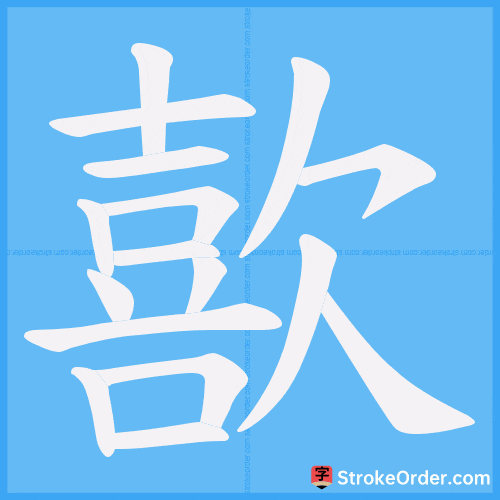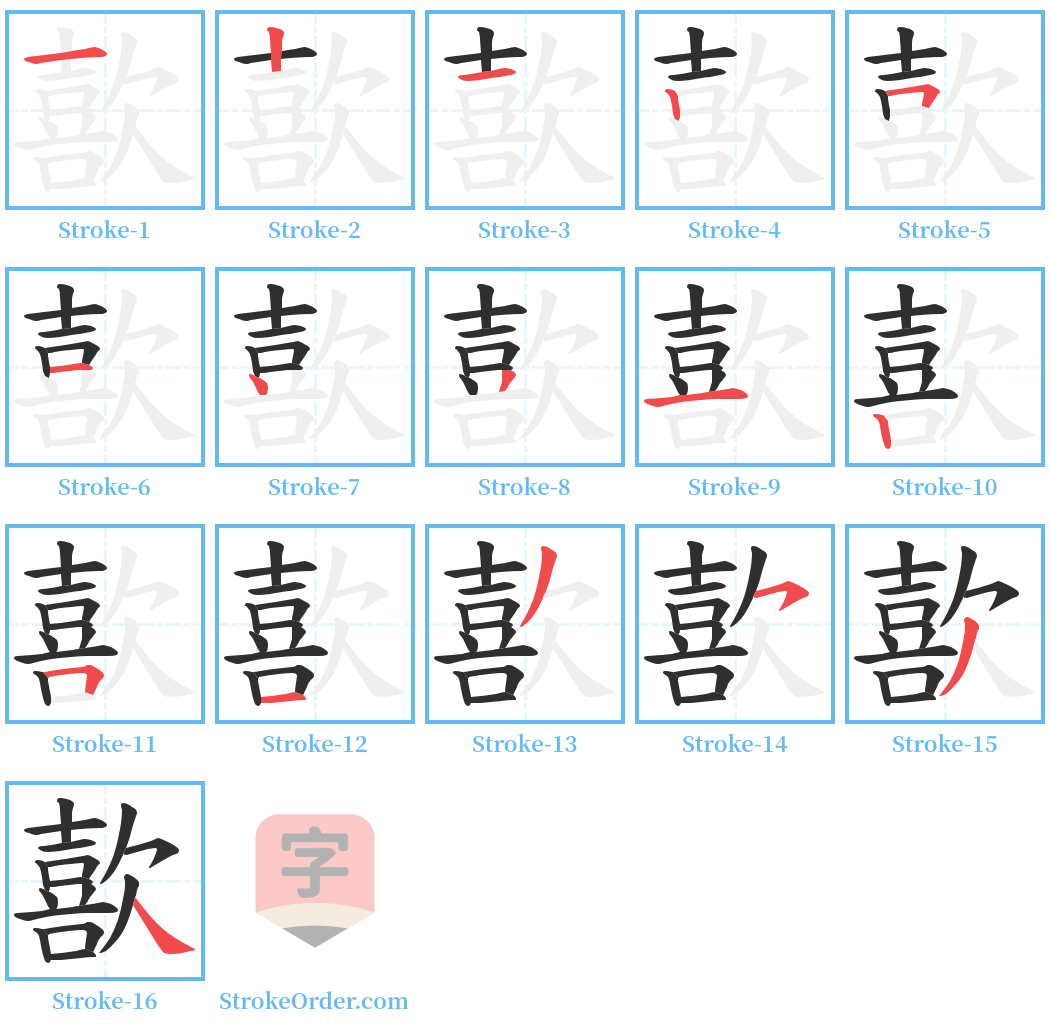歖 Stroke Order
Animated Stroke Order of 歖

Stroke Order Diagrams for 歖

Information of 歖
Pinyin
xǐ
Radical
欠
Strokes
16 strokes
Usage
★★
Definition
歖
1. Same as "喜" (to be happy).
同“喜”。
2. Excited appearance; to like strongly; to be very happy; to express joy in one's facial expression.
歖 [兴奋的样子);喜欢不杀(很喜欢;喜欢死了);喜上眉梢(眉宇间露出喜悦的表情).
3. "It's easy to know a person's death, but difficult to calculate joy mistakenly." — From "Baiju Jing · Boromen killing son".
容易,人命难知,计算喜错。——《百喻经·婆罗门杀子喻》
4. (Verb) To love; to have a hobby, to like to become an official. — From "Han Shu · Huang Ba Zhuan". Also see: 喜士 (friendly; likes to receive virtuous people); 喜功 (proud of one's accomplishments; eager to achieve great things; greedy for merit); 喜名 (fond of reputation; pursuing honor). To make someone happy.
〈动〉喜爱;爱好,喜为吏。——《汉书·黄霸传》又如:喜士(好客;喜接纳贤士);喜功(自负其功;喜立大功;贪功);喜名(好名;追求名誉)。使…高兴
5. When a woman is pregnant, if she is examined by a doctor and it is said that it is not joy. — From "Dream of the Red Chamber". Also see: 喜信 (referring to pregnancy); 喜脉 (the pulse symbolizing a woman's pregnancy); 喜弹 (duck eggs that do not hatch into chicks, also called "duck wontons").
妇女怀孕,叫大夫瞧了,又说并不是喜。——曹雪芹《红楼梦》又如:喜信(指怀孕);喜脉(妇女怀孕的脉象);喜弹(孵不成雏鸭的鸭蛋。也叫“鸭馄饨”).
6. (Noun) Joyous events; celebrating joy while mourning sorrow. — From "Guo Yu · Lu Yu". Also see: 喜兆 (omen of happy events); 喜信 (family reports of successful candidates in the Tang Dynasty; omens of happy events).
〈名〉喜事,固庆其喜而吊其忧。——《国语·鲁语》又如:喜兆(喜事的征兆);喜信(唐代进士及第的家报;喜庆事情的先兆).
7. Smallpox. In the old practice, when a child gets smallpox, it is often referred to as "joy" to avoid the fear of smallpox, believing that once the pox has appeared, peace will follow. Thus, the character "喜" is used in place of smallpox to seek good luck, and that a child who has a fever is seen as having joy, not some other illness. — From "Dream of the Red Chamber".
痘疹。旧俗孩子出痘时,常因惧得天花而讳言之,又以痘既发出便可平安,故用“喜”字代指,以求吉利,姐儿发热是见喜了,并非别症。——《红楼梦》
8. [Surname]
[姓]